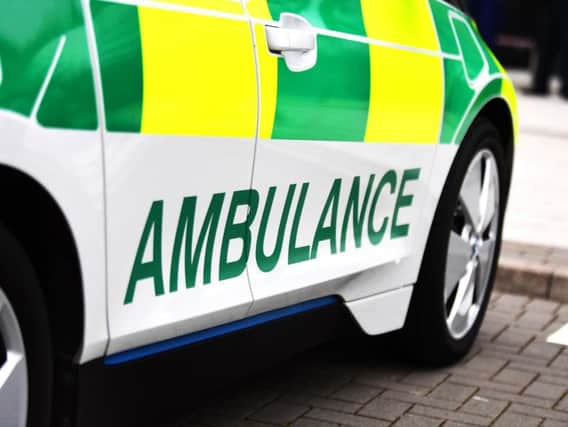'Failed' 90-year-old died after waiting almost two hours for ambulance


The apparent late arrival of ambulances was linked to the deaths of three pensioners in East Sussex in 2017.
Daisy Filby, 90, waited for about an hour and 45 minutes for an ambulance as she lay face down, unable to move, at her home in Seaford after a fall, an inquest in Hastings heard.
Advertisement
Hide AdAdvertisement
Hide AdShe died as the result of an "accident contributed to by neglect", senior coroner Alan Craze said on Wednesday.
Her disabled daughter Linda Filby was unable to lift her and kept ringing 999.
The first 999 call was made on June 19 2017 at 8.42, the last call was made at 10.11 and the ambulance arrived at 10.24.
Mrs Filby was pronounced dead when paramedics arrived."There clearly was a failure to provide basic medical attention," the coroner said, adding: "It's a very tragic case indeed."
Mr Craze said the problem in this case was not the actions of any one individual, adding: "The problem ultimately is systemic and the heart of it is the call-taking and decision-making system."
He said it is "easy" for him to see what probably happened - that in a period of austerity, pressure has been "huge" to use available resources as efficiently as possible.
Mr Craze referred to the programming of a computer to make decisions, and said that in the case of Mrs Filby "only a properly-trained human being" could have listened to the call and made decisions.
He said there was "no meeting of minds" between the caller and the call-taker.
Advertisement
Hide AdAdvertisement
Hide Ad"The tragedy is that there was no proper dialogue on any of those first four calls," the coroner said.
He said the system used by South East Coast Ambulance Service appears to be a nationally rolled-out system and added: "That system has failed Mrs Filby and her daughter."
Mr Craze said the cause of Mrs Filby's death was postural hypoxia and hypertensive heart disease.
Meanwhile, the coroner described the death of Anthony Harding, 84, as a "very sad case".
Mr Craze concluded that Mr Harding died of natural causes following a 999 call after he collapsed.
The call was triaged as a "minor medical issue" and medics did not arrive for more than an hour "because of a shortage of resources", the coroner said.
He said the issue here was the fact, which he said was not denied, of the late response and arrival by the ambulance.
The inquest heard that Mr Harding's wife called 999 at 6.32pm after he collapsed on August 21 2017, and an ambulance technician arrived at 7.45pm.
Advertisement
Hide AdAdvertisement
Hide AdHe found Mr Harding lying on his back in a bathroom but noted his airway was clear and he was able to talk.
However, he then had a seizure and was sick.
Paramedics arrived to assist at 8.31pm after the technician requested "red crew back-up".
The inquest heard Mr Harding was pronounced dead at 10.34pm, and cause of death was given as ruptured abdominal aortic aneurysm.
The inquest into the death of a third pensioner, 87-year-old great-grandfather Maurice Goodwin, continues.